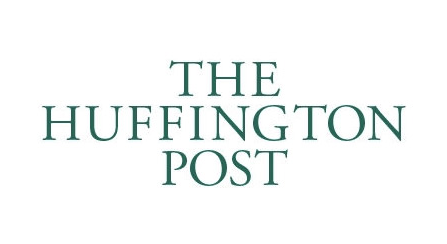Imagine a future where an all-seeing government monitors political messages and the people who view them. No matter where you are in the world, your location, your relationships, the things you say, and the things you read are constantly being tracked. For an extra twist, replace the government with a cadre of mysterious, powerful corporations.
This probably sounds like the setting of a dystopian science fiction movie. Americans treasure their privacy and freedom of speech and would hate to see them stripped away. Yet efforts to prevent foreign interference in U.S. elections are giving politicians cover to quietly take us down this very path.
Consider the response to reports that Russians attempted to influence the 2016 election. Rather than increase counterintelligence efforts or tighten foreign lobbying registration and disclosure laws, Senators summoned social media companies to Washington to scold them over a small number of online ads purchased by Russian entities. The warning was clear: either you police online speech, or we will.
“Your actions need to catch up to your responsibilities” Senator Richard Burr (R-NC) told attorneys from Google, Facebook, and Twitter. Senator Mark Warner (D-VA), co-sponsor of legislation to dramatically increase regulations for online political ads, criticized what he saw as a “lack of resources, lack of commitment and a lack of genuine effort” to resolve his concerns.
Most direct of all was Senator Dianne Feinstein (D-CA), who offered this chilling warning: “You created these platforms, and they are being misused. And you have to be the ones to do something about it, or we will… We are not going to go away, gentlemen.”
Although foreign political ads are illegal in U.S. elections, Americans should be wary of a response that calls on corporate leaders to play the role of speech police online. Partnerships between large corporations and government rarely lead to solutions that work for everyone. They lead to solutions that work for the powerful – think of billionaire sports owners profiting from massive taxpayer subsidies for stadiums.
This is especially dangerous in the area of speech, where strong legal protections are essential for dissenting opinions to get a fair hearing. The history of First Amendment law makes this painfully clear. America’s protections for speech developed over time in response to efforts to silence communists, anti-war protesters, civil rights activists, and other advocates of what were, at the time, controversial causes.
Thanks to the Supreme Court, the government isn’t able to shut down dissenting views today. But private companies? That’s a totally different story. Private entities are not bound by the First Amendment, so when they join forces with government, our speech rights become muddled.
For power-hungry politicians, outsourcing censorship is a means to an end. Pressuring an industry into censoring itself, often with the threat of new laws in the background, can achieve in practice what the government is forbidden from doing directly. The result is the enforcement of conventional values to the exclusion of new or dissenting ideas.
A preview of where current proposals may lead us can be found in news articles praising China’s approach to foreign propaganda: government and corporations working in sync to erase content they don’t like. True, China’s methods work. But they also silence anti-communists, critics of the government, and discussion of political issues like Tibetan independence or the Tiananmen Square protests. Rather than a model to follow, China offers a clear warning of what not to do.
If Facebook and Twitter were to begin behaving like Sina Weibo – one of China’s most popular social networking sites – pages and posts relating to contentious causes like Black Lives Matter or climate change could simply disappear. Indeed, current proposals in Congress would make social media companies liable for political messages on their platforms that can be traced back to foreign entities. What better way to avoid fines and lawsuits than simply deleting comments that might land you in trouble – or keeping a list of everyone who views those posts?
Proponents of further regulating internet speech say they seek only increased transparency in online advertising. That doesn’t square with the Senate’s actions. Fierce condemnations of social media companies, fearmongering about “misinformation” and “fake news,” and misleading legislation titled the “Honest Ads Act” speak to much larger ambitions. They suggest an interest in dramatically curtailing freedom of speech online.
Our response to Russian dissemination of propaganda should punish Russia, not Americans. Rewriting the rules for political speech on the internet – or pressuring social media companies to regulate with a heavy hand – will threaten the future of legitimate, homegrown political movements in the United States.
Companies like Facebook, Twitter, and Google are free to determine who can use their sites, and how. But foreign propaganda is no excuse for skepticism of corporate power (and laziness) to fly out the window. Online political speech should ultimately be left up to voters to judge – not Mark Zuckerberg or Donald Trump.
This post originally ran in The Huffington Post on November 28th 2017.














